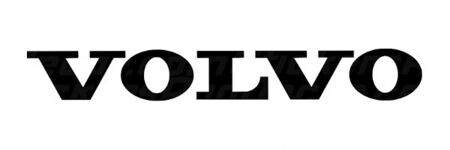Volvo
- Members
The Volvo Group (legally Aktiebolaget Volvo, shortened to AB Volvo) is a Swedish multinational manufacturing corporation headquartered in Gothenburg. While its core activity is the production, distribution and sale of trucks, buses and construction equipment, Volvo also supplies marine and industrial drive systems and financial services. In 2016, it was the world's second largest manufacturer of heavy-duty trucks.

|
European charging infrastructure joint venture | |
| Today, the Volvo Group, Daimler Truck, and the TRATON GROUP completed the final step in forming the previously announced joint venture for charging infrastructure in Europe. The new joint venture, with Anja van Niersen as appointed CEO, is expected to have a significant role in supporting the European Union's Green Deal for carbon-neutral freight transportation by 2050. | ||

|
Volvo CE develops full power of electric ecosystem with E-Worksite | |
| A groundbreaking research project with Volvo Construction Equipment (Volvo CE) and partners to explore every aspect of the electric ecosystem is helping to deliver a complete site solution for real urban applications. | ||

|
Volvo New Electric Bus Offerings | |
| Volvo Buses is expanding its electromobility offer worldwide. With the launch of the new Volvo BZL Electric chassis, Volvo Buses provides a solid platform for sustainable and efficient public transport in cities around the world, along with reliable and profitable operations for customers. | ||
Details
Automobile manufacturer Volvo Cars, also based in Gothenburg, was part of AB Volvo until 1999, when it was sold to the Ford Motor Company. Since 2010 Volvo Cars has been owned by the Chinese multinational automotive company Geely Holding Group. Both AB Volvo and Volvo Cars share the Volvo logo and cooperate in running the Volvo Museum in Sweden.
The corporation was first listed on the Stockholm Stock Exchange in 1935, and was on the NASDAQ indices from 1985 to 2007.
Volvo was established in 1915 as a subsidiary of SKF, a ball bearing manufacturer; however both the Volvo Group and Volvo Cars regard the rollout of the company's first car series.
In January 1999, Volvo Group sold Volvo Car Corporation to Ford Motor Company for $6.45 billion. The division was placed within Ford's Premier Automotive Group alongside Jaguar, Land Rover and Aston Martin. Volvo engineering resources and components would be used in various Ford, Land Rover and Aston Martin products, with the second generation Land Rover Freelander designed on the same platform as the second generation Volvo S80. The Volvo T5 petrol engine was used in the Ford Focus ST and RS performance models, and Volvo's satellite navigation system was used on certain Aston Martin Vanquish, DB9 and V8 Vantage models. In November 1999, Volvo Group purchased a 5% stake in Mitsubishi Motors, as part of a partnership deal for the truck and bus business. In 2001, after DaimlerChrysler bought a large Mitsubishi Motors stake, Volvo sold its shares to the former.
Renault Véhicules Industriels (which included Mack Trucks, but not Renault's stake in Irisbus) was sold to Volvo during January 2001, and Volvo renamed it Renault Trucks in 2002. Renault became AB Volvo's biggest shareholder with a 19.9% stake (in shares and voting rights) as part of the deal. Renault increased its shareholding to 21.7% by 2010.
AB Volvo acquired 13% of the shares in the Japanese truck manufacturer Nissan Diesel (later renamed UD Trucks) from Nissan (part of the Renault-Nissan Alliance) during 2006, becoming a major shareholder. Volvo Group took complete ownership of Nissan Diesel in 2007 to extend its presence in the Asian Pacific market.
Renault sold 14.9% of their stake in AB Volvo in October 2010 (comprising 14.9% of the share capital and 3.8% of the voting rights) for €3.02 billion. This share sale left Renault with around 17.5% of Volvo's voting rights.[26] Renault sold their remaining shares in December 2012 (comprising 6.5% of the share capital and 17.2% of the voting rights at the time of transaction) for €1.6 billion, leaving Swedish industrial investment group Aktiebolaget Industrivärden as the largest shareholder, with 6.2% of the share capital and 18.7% of the voting rights.[28][29] That same year, Volvo sold Volvo Aero to the British company GKN. In 2017 Volvo Cars owner Geely became the largest Volvo shareholder by number of shares after acquiring an 8.2% stake, displacing Industrivärden. Industrivärden kept more voting rights than Geely (Geely getting a 15.8%).
In December 2013, Volvo sold its Volvo Construction Equipment Rents division to Platinum Equity. In 2014, Volvo's Volvo Construction Equipment acquired the haul truck manufacturing division of Terex Corporation, which included five truck models and a manufacturing facility in Motherwell, Scotland.[33][34][35] In November 2016, Volvo announced its intention of divesting its Government Sales division, made up mainly of Renault Trucks' Renault Trucks Defense but also of Panhard, ACMAT, Mack Defense in the United States, and Volvo Defense. The project for selling the division was later abandoned and, in May 2018, Volvo reorganized Renault Trucks Defense and renamed it Arquus.
In December 2018, Volvo announced it intended to sell a 75.1% controlling stake of its car telematics subsidiary WirelessCar to Volkswagen with the aim of focusing on telematics for commercial vehicles. The sale was completed in March 2019.
In December 2019, Volvo and Isuzu announced their intention of forming a strategic alliance on commercial vehicles. As part of the agreement, Volvo would sell UD Trucks to Isuzu. The "final agreements" for the alliance were signed in October 2020, with UD Trucks sale pending on regulatory clearances. The sale was completed in April 2021.
In April 2020, Volvo and Daimler announced that the former planned to acquire half of Daimler's fuel cell business, forming a joint venture between the two companies.
In April 2021, Volvo announced that it had signed up a new partnership with steel manufacturer SSAB to develop fossil fuel-free steel for future use in Volvo's vehicles.[44] The partnership comes is derived from SSAB's own green steel venture, HYBRIT.
